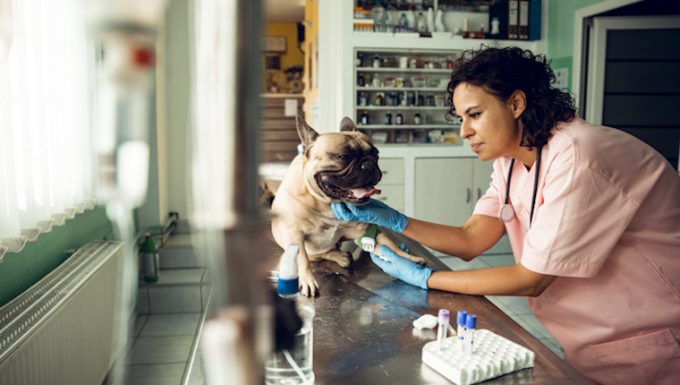Peritoneopericardial diaphragmatic hernia in dogs is a congenital condition. The condition can cause a range of symptoms including breathing problems.
Unfortunately, dogs born with the condition have a prenatal defect.
Technically, the condition is also called hernia between the pericardium and peritoneum in dogs.
If you see the signs of the condition in your dog, then get to a veterinarian for a proper diagnosis and treatment.
Here’s what you should know about the symptoms, causes, and treatments for the condition.
Symptoms of Peritoneopericardial Diaphragmatic Hernia in Dogs
The condition produces a small range of symptoms. For instance, some of the most common symptoms include:
However, in some cases the condition is asymptomatic. This means a dog will not show any symptoms.
Causes of Peritoneopericardial Diaphragmatic Hernia in Dogs

The cause of the condition is congenital. This means that a dog is unfortunately born with the condition.
Treatments for the Condition in Dogs
Firstly, your vet will ask about your dog’s symptoms. Secondly, your vet will ask about your dog’s complete medical history.
Thirdly, a full physical examination will be carried out. Blood and urine tests will also be taken. Additionally, X-rays and imaging techniques will show any abnormalities. Finally, an echocardiogram can monitor your dog’s heart.
Generally, treatment involves surgery. This corrects the hernia. It also returns affected organs to their proper place.
Thankfully, dogs who are treated for this condition recover well. Although it is important to provide your dog with a quiet and calm home environment. Also, make sure to schedule regular vet visits. This is to monitor your dog’s recovery.
Finally, you can read more about hernias in general and your dog here!
Have you ever cared for a dog who suffered from this condition? How did your vet help your dog recover? Let us know in the comments section below.









